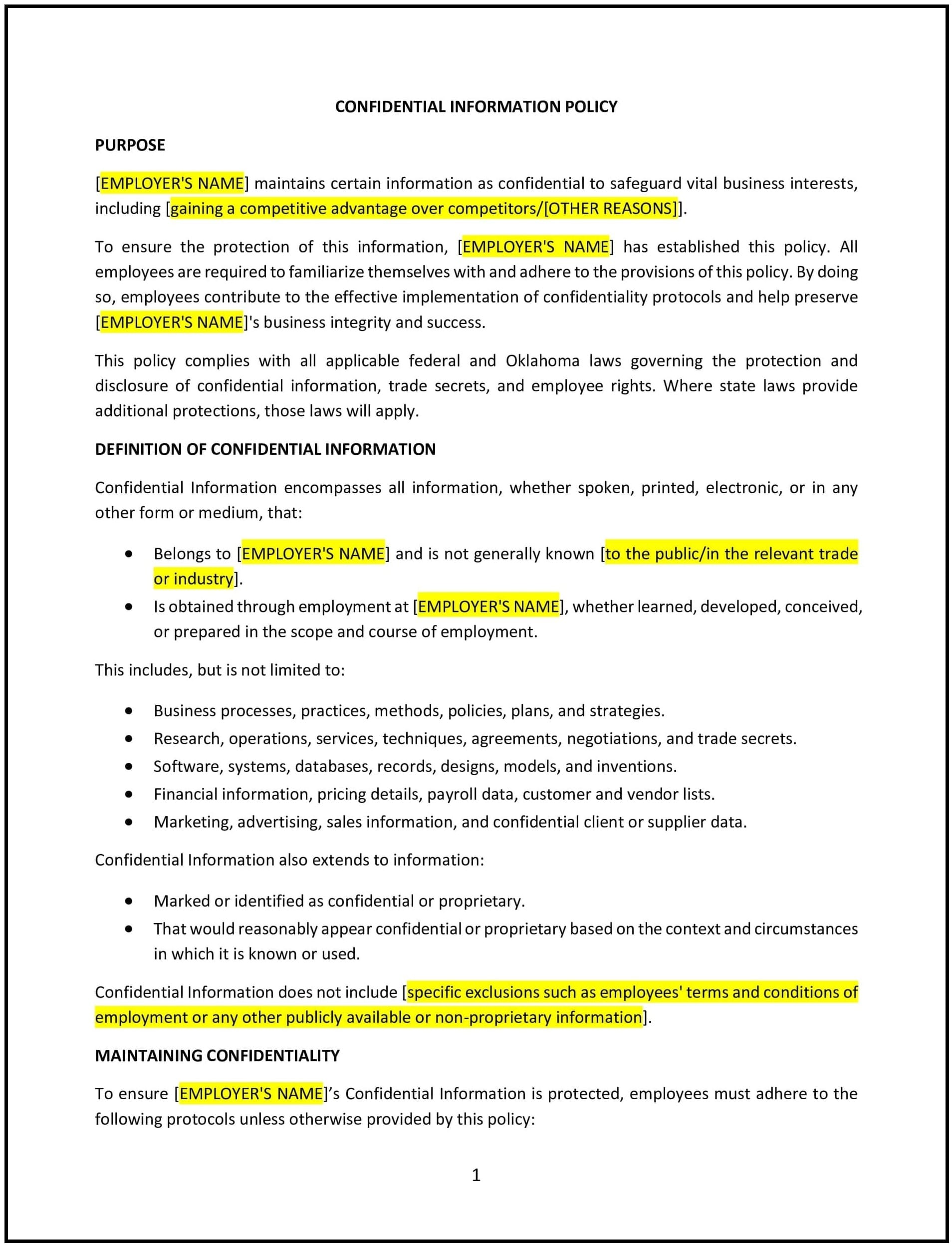Confidential information policy (Oklahoma): Free template
Got contracts to review? While you're here for policies, let Cobrief make contract review effortless—start your free review now.

Customize this template for free
Confidential information policy (Oklahoma)
This confidential information policy is designed to help Oklahoma businesses protect sensitive company data, trade secrets, and employee and client information. The policy outlines guidelines for handling, storing, and sharing confidential information to prevent unauthorized access or disclosure.
By implementing this policy, businesses can safeguard critical information, maintain trust, and reduce legal and financial risks.
How to use this confidential information policy (Oklahoma)
- Define confidential information: Specify what constitutes confidential data, such as business plans, financial records, client data, employee records, and trade secrets.
- Establish access controls: Limit access to confidential information based on job responsibilities and need-to-know criteria.
- Outline handling procedures: Require proper storage, encryption, and disposal of confidential documents and digital records.
- Prohibit unauthorized disclosure: Clearly state that employees may not share confidential information outside of approved business purposes.
- Address remote work considerations: Implement security measures for employees accessing confidential data outside the office.
- Detail reporting requirements: Require employees to report suspected breaches or unauthorized access immediately.
- Review regularly: Periodically assess the policy to align with evolving security risks and Oklahoma-specific regulations.
Benefits of using this confidential information policy (Oklahoma)
Implementing this policy provides several advantages for Oklahoma businesses:
- Enhances data security: Reduces the risk of data breaches and leaks.
- Protects business interests: Safeguards intellectual property and competitive advantages.
- Strengthens compliance: Helps businesses align with privacy laws and industry regulations.
- Builds client and employee trust: Reinforces confidence in the company’s ability to manage sensitive data responsibly.
- Reflects Oklahoma-specific security considerations: Tailors data protection measures to local business needs.
Tips for using this confidential information policy (Oklahoma)
- Train employees: Provide regular education on handling confidential data securely.
- Enforce access restrictions: Use role-based permissions to limit data access.
- Implement monitoring tools: Track access to sensitive data to detect potential security threats.
- Establish remote work security measures: Require VPNs and encrypted communication for remote access.
- Review data protection protocols: Update security measures based on emerging threats and business needs.